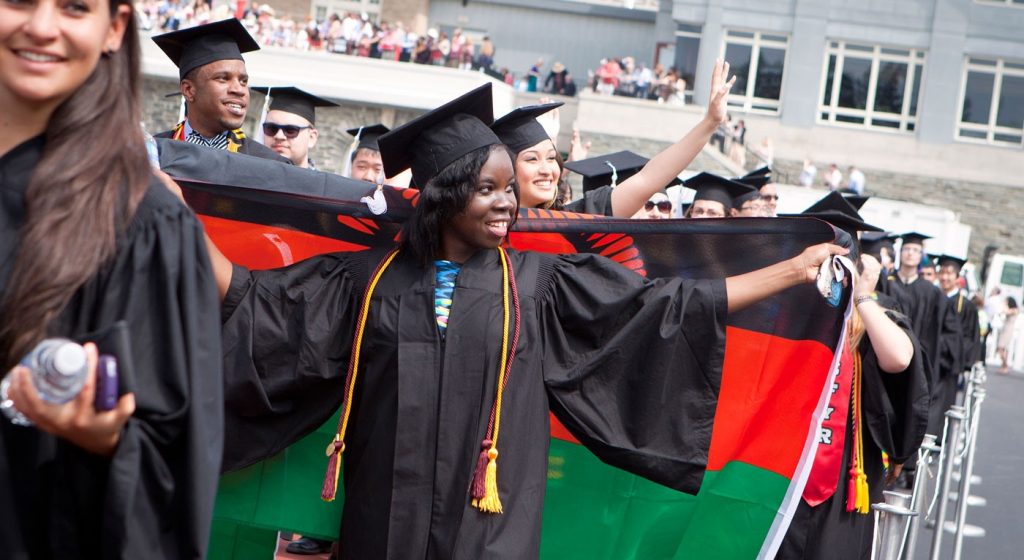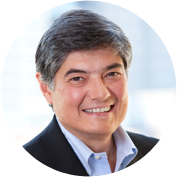Making and Living History
Resource type: News
Christopher G. Oechsli, President and CEO, The Atlantic Philanthropies |

“Our grants, now completed, are like sown seeds which will bear the fruit of good works long after we turn out the lights at The Atlantic Philanthropies.”
– Chuck Feeney
Atlantic has been making and living our history lately.
In December 2016, we made our final grant commitment – $7 million to Cornell University for the Cornell Tradition, a fellowship program offering distinctive service, work and scholarship opportunities to that university’s most civically minded, socially responsible undergraduates.
A history-making event on its own, a fact noted in The New York Times, The Irish Times and in news outlets in Australia, South Africa and elsewhere the foundation has had a presence, the Cornell gift stands out in the annals of Atlantic for another reason. In 1982, the Cornell Tradition was started by the first-ever grant that Atlantic and our founder Chuck Feeney made, for $7 million.
This last award brings Atlantic’s support for the Cornell Tradition to $40 million. Over the years, the program has underwritten fellowships for 5,500 Cornell students.
The Cornell Tradition is a fellowship program offering distinctive service, work and scholarship opportunities to Cornell’s most civically minded, socially responsible undergraduates. Video: Flatbush Films
It is fitting that our grantmaking should come full circle and end with this historic grant. The Cornell Tradition represents so many of the values that Chuck has lived and demonstrated throughout his life and that have been at the core of our work. Among them: Service to others. Lending a helping hand to the underdog. Providing for an education that can transform lives. Opening a pathway to opportunity for people, communities, even nations.
Nearing the End of Our Journey
While history may be intentionally repeating itself in the case of our first and last grants, Atlantic is on track for a record of a different sort in a few more years. By 2020, we will close our doors, becoming by far the largest foundation ever to invest our entire endowment and voluntarily conclude operations.
Completion of our grantmaking at the end of 2016, which pushed the total awarded over the course of our brief life to $8 billion, brings us one step closer to the end of the path Chuck Feeney and Atlantic started down 35 years ago.
As Chuck himself recently told The New York Times in his typically understated way, “You’re always nervous handling so much money, but we seem to have worked it pretty well.”
We believe that the time span of a foundation’s existence is secondary to its ability to achieve lasting improvements that contribute to building a better world. We take great satisfaction from what our grantees achieved in their efforts to advance opportunity and promote equity and dignity over the 35 years we invested and allocated $8 billion.
While that was a very concentrated time frame for committing such a large amount of money, we did so from a sense of urgency to act now. We saw opportunities to make a lasting difference by devoting resources to problems sooner rather than later. Tangible evidence that our work was having positive impact, on the lives of people, provided additional motivation to continue making big bets to produce lasting results. In short, it’s not how much time you have to get the job done, but how effectively you use the time and resources you have and choose to apply to the task at hand. For us, it always has been about having lasting impact.
Because our founder believes in Giving While Living—the idea that individuals of means should use their wealth to make a difference in their lifetimes—we were given the unique opportunity to show what can happen when a foundation is freed from the constraints of having to manage an endowment for perpetuity and of limiting our grant allocations to an arbitrary constraint. While we certainly had to plan and manage our resources thoughtfully, our mantra became “spend to impact, not to budget.”
Places of Change
“CBS This Morning” co-hosts Gayle King and Norah O’Donnell joined the museum’s founding director, Lonnie Bunch, for a tour of what makes the 19th and newest Smithsonian museum such a special place.
In discussing the history of Atlantic’s work, we often speak metaphorically about “building a better world.” But there’s also an aspect of that work that involves actual bricks and mortar. Over the course of our history, we’ve supported the construction of 1,000-plus buildings all over the world. You may have seen the book we produced in 2015, Laying Foundations for Change that chronicles the impact of these projects on health, education, culture and the livelihood of millions of people worldwide. Because Laying Foundations was completed before two other culminating foundation-supported capital projects got underway, I want to use this opportunity to let you know about them and how they reflect Atlantic’s mission and values.
One is the National Museum of African American History and Culture that Presidents Barack Obama and George W. Bush officially opened last fall in Washington, D.C. This is the first public museum in the United States devoted to an exploration of the African-American experience and the country’s racial history. Atlantic’s support is part of our ongoing effort to promote racial equity through inquiry, reflection and action.
We have long believed that dismantling the barriers to success for African-American communities requires deeper public understanding of the historical experience of slavery and racial injustice, and the ways in which this often destructive and divisive history shapes ongoing bias and discrimination in the United States today. By providing a place for challenging, thoughtful discussions, and research and public education on race and its historical effect on contemporary issues, the new museum will help offer insights on addressing structural inequalities rooted in race and contribute to changing our nation’s racial narratives. Through support for the museum, as well as our recently launched Atlantic Fellows for Racial Equity program, we hope to help challenge and repair deeply harmful legacies and behaviors associated with racial oppression and exclusion in the US and beyond.
From University Transformation to Health and Social Economic Equity
A second Atlantic-supported building, The Isivivana Centre, opened last October in Khayelitsha township, outside Cape Town, South Africa. A project of the Khayelitsha Youth and Community Centre Trust, the Centre is now home to several nongovernmental organizations—many of them also Atlantic grantees—that share a common pursuit for health and social equity in the work they do. Among the organizations operating out of Isivivana is a new group—Tekano—whose flagship program is the Atlantic Fellows for Health Equity in South Africa. Tekano aims to create, connect and sustain a community of innovators and influential leaders who will help build a healthier South Africa for all.
The Isivivana Centre was built to house a collection of activist organizations, including Tekano and many Atlantic grantees.
Our investments in Isivivana and the Atlantic Fellows for Health Equity in South Africa build on the foundation’s work to advance human rights, promote better health care, enhance the quality of and access to higher education, and deliver services that support transformation and social change in that country.
At Isivivana’s opening last fall, David Sternlieb, Atlantic’s chief operating officer, explained why Khayelitsha stands as a beacon of promise and hope for so many: “There is a long and inspiring history of persistent, passionate and uncompromising activism and advocacy here in the township for better schools, safer streets, quality health care and sanitation, HIV treatment, freedom from homophobia, responsive policing and a future fundamentally different from the racist, colonial history of South Africa. This community has never wavered in its dedication to fighting for its existence with full rights and dignity – to be not only recognized, but respected.”
These two most recent capital initiatives attest to our continuity of purpose and our history as we near the end of our life as a foundation. But as I’ve discussed in past updates, though we now have concluded our grantmaking, Atlantic’s efforts to maximize our impact and end well continues through 2020. Most significantly our grantees’ work will endure after we close our doors. Several of our final big bets—including the Atlantic Fellows programs—launched in the last 18 months to address 21st century challenges such as brain health, global inequality, anti-black racism, and health equity will be operating for another decade or more. We are dedicated to supporting the successful launching of these efforts to empower and connect a new generation of emerging, catalytic, collaborative leaders working together to realize fairer, healthier, more inclusive societies.
As we also look forward, we also look back at our history. We do so with the hope that our legacy and the lessons that can be derived from it – from how we operated as a limited life foundation to how to support advocacy effectively to ways to partner with government to advance opportunity – will be useful to future generations of donors, helping them determine how they can, much as Chuck Feeney has done over the past 35 years, use their wealth to build a better world.

Best Regards,

Christopher G. Oechsli
President and CEO